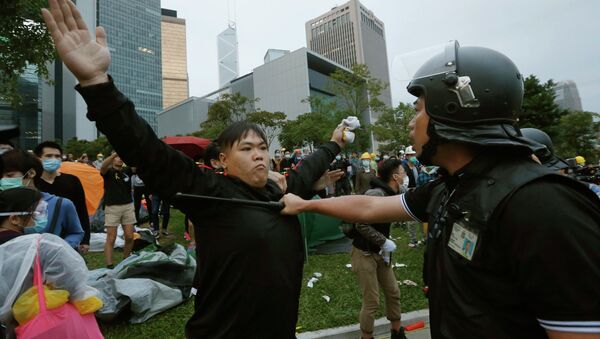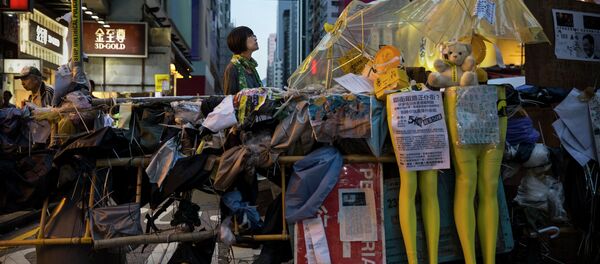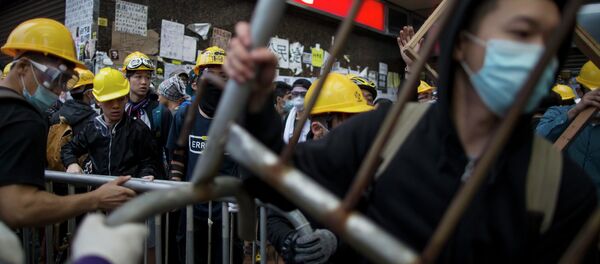MOSCOW, December 3 (Sputnik) — Three leaders of the Occupy Central with Love and Peace movement, which along with several student organizations launched a civil disobedience campaign in Hong Kong, had turned themselves in, but were turned away by local police, the group said.
OCLP trio have entered Central Police Station where they will hand themselves in pic.twitter.com/cfbmTCcJmp
— Occupy Central 和平佔中 (@OCLPHK) 3 декабря 2014
The leaders were allowed to leave the police station without restrictions, Benny Tai tweeted. They still had to mark offenses they had committed on a special list.
1/2 Benny Tai: we've been allowed to leave with no restrictions, not arrested. were presented with a special form pic.twitter.com/acpIiKZgqr
— Occupy Central 和平佔中 (@OCLPHK) 3 декабря 2014
2/2 asked to tick from list of offences on custom form, including taking part in unauthorised assembly, incitement, criminal damage etc
— Occupy Central 和平佔中 (@OCLPHK) 3 декабря 2014
In another tweet Benny Tai added the trio might be arrested later.
BT — We still have to wait and see. We may still be arrested later and charged with more serious offence
— Occupy Central 和平佔中 (@OCLPHK) 3 декабря 2014
Activists claim Beijing’s decision is an infringement on democracy. Hong Kong, which became part of China on July 1, 1997, is governed according to a "one country, two systems" principle, meaning the region enjoys wide autonomy in all areas except foreign affairs and defense.
As much as Hong Kong attempts to emphasize its difference from mainland China, pointing to its history as a former British territory, such an idea would have been hard to imagine under the British rule, as London had never provided any voting rights to Hong Kong, Forbes said.
The campaign has largely been peaceful and civilized, but has also exhibited several clashes between protesters and law enforcement officers. Riot police have on several occasions used tear gas to disperse activists.
By turning themselves in, Benny Tai, a law professor at the University of Hong Kong, Chan Kin-man, a professor of sociology at Chinese University, and Reverend Chu Yiu-ming have tried to halt this alarming trend. Despite their efforts, students and pro-democracy activists continue to occupy two protest sites and are unlikely to leave.
The demonstrations are estimated to have attracted as many as 100,000 people at the height of the protest movement, which has since lost its momentum.




